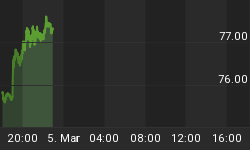When interest rates are zero and it costs a bank to look after your money it becomes an unattractive asset. Banks in some jurisdictions (such as Switzerland, Denmark and Sweden) are even charging customers interest on cash and deposits. And if you go to your bank and withdraw large amounts in the form of folding notes to avoid these charges you will be lucky if you are not treated as a sort of pariah. For the moment, at least, these problems do not extend to sound money, in other words gold.
There are two distinct issues involved with government-issued currency: zero-to-negative interest rates, which all but eliminate any interest turn on deposits for the banks, and a systemic issue that arises if too many people withdraw their money from the banking system. The problems with the latter would become significant if enough people decide to effectively opt out of holding money in the banks.
Conversion of bank deposits into physical cash increases reserve ratios, restricting the banks' ability to create credit. However, while the banks are contractually obliged to supply physical cash to anyone who wants it, a drawdown on bank deposits is a bad thing from a central bank's point of view. A desire for physical cash is, therefore, discouraged. Instead, if the option of owning physical cash was removed and there was only electronic money, deposits would simply be transferred from one bank to another and any imbalances between the banks resolved through the money markets, with or without the assistance of a central bank. The destabilising effects of bank runs would be eliminated entirely.
In the current financial climate demand for cash does not originate so much from loss of confidence in banks, with some notable exceptions such as in Greece. Instead it is a consequence of ultra-low or even negative interest rates. The desire for cash is therefore an unintended consequence of central banks attempting to inject confidence into the economy. The rights of ordinary individuals to turn deposits into physical cash are therefore resisted by central banks, which are focused instead on managing zero interest rate policies and suppressing any side effects.
Central banks can take this logic one step further. Monetary policy is primarily intended to foster investor confidence, so any tendency for investors to liquidate investments is, therefore, to be discouraged. However, with financial markets getting progressively more expensive central bankers will suspect the relative attraction of cash balances are increasing. And because banks are making cash deposits more costly, this is bound to increase demand for physical notes.
Monetary policy has now become like a pressure cooker with a defective safety-valve. Central bankers realise it and investors are slowly beginning to as well. Add into this mix a faltering global economy, a fact that is becoming impossible to ignore, and a dash-for-cash becomes a serious potential risk to both monetary policy and the banking system.
There is an obvious alternative to cash, and that is to buy physical gold. This does not constitute a run on the banking system, because a buyer of gold uses electronic money that transfers to the seller. The problem with physical gold is a separate issue: it challenges the raison d'être of the banking system and of government currencies as well.
This is why we can still buy gold instead of encashing our deposits, for the moment at least. It can only be a matter of time before people realise that with the cash option closing this is the only way to escape an increasingly dysfunctional financial system.
Disclaimer: The views and opinions expressed in the article are those of the author and do not necessarily reflect those of GoldMoney, unless expressly stated. Please note that neither GoldMoney nor any of its representatives provide financial, legal, tax, investment or other advice. Such advice should be sought form an independent regulated person or body who is suitably qualified to do so. Any information provided in this article is provided solely as general market commentary and does not constitute advice. GoldMoney will not accept liability for any loss or damage, which may arise directly or indirectly from your use of or reliance on such information.















